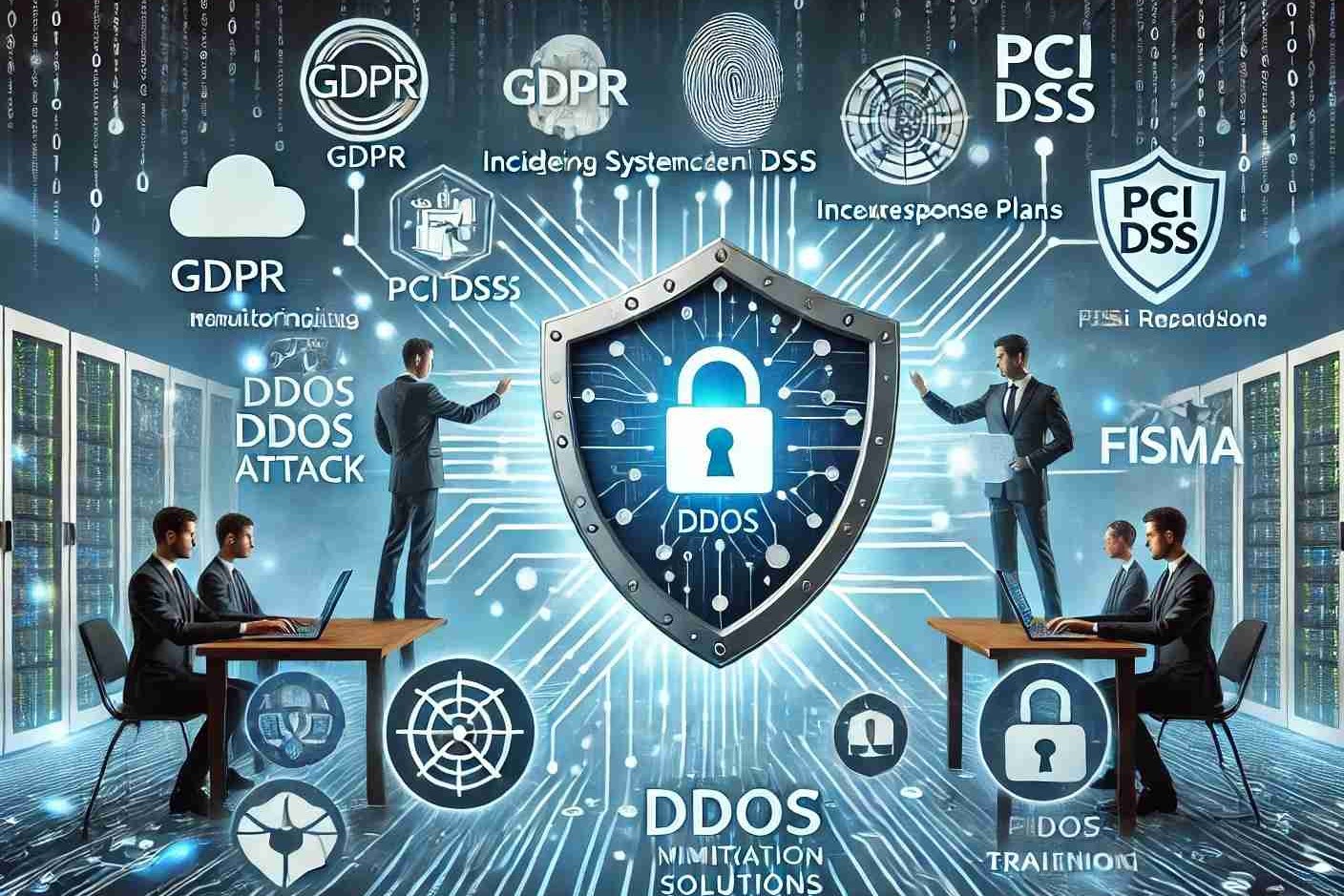05 September 2024
The Roles of Regulation and Compliance in DDoS Protection
In an increasingly advanced digital era, Distributed Denial of Service (DDoS) attacks pose serious threats to various organizations worldwide. These attacks aim to disrupt services by flooding networks, servers, or applications with overwhelming traffic. To counter these threats, regulations and security standards have been introduced across different countries and industries. This article will discuss some of the applicable regulations and security standards, as well as best practices for ensuring compliance with these regulations.
Applicable Regulations and Security Standards
1. General Data Protection Regulation (GDPR)
In Europe, the General Data Protection Regulation (GDPR) is the primary regulation governing data protection. GDPR requires organizations to take adequate technical and organizational measures to protect personal data from threats, including DDoS attacks. Compliance with GDPR necessitates the implementation of strong security measures and quick responses to security incidents.
2. Payment Card Industry Data Security Standard (PCI DSS)
For organizations that process credit card payments, the PCI DSS is a critical security standard. This standard mandates the implementation of strict security controls to protect cardholder data, including protection against DDoS attacks. PCI DSS includes requirements for firewalls, data encryption, and continuous network monitoring.
3. Federal Information Security Management Act (FISMA)
In the United States, FISMA governs information security for federal government agencies. FISMA requires agencies to develop, document, and implement information security programs that include measures to protect against cyber threats, including DDoS attacks. FISMA promotes a systematic and risk-based approach to information security management.
Best Practices for Ensuring Compliance
1. Monitoring and Early Detection
To protect against DDoS attacks, organizations need to have effective monitoring systems to quickly detect threats. Continuous network monitoring and anomaly detection tools can help identify early signs of DDoS attacks and enable rapid responses before damage occurs.
2. Developing and Testing Incident Response Plans
Organizations should have detailed incident response plans that outline the steps to take in the event of a DDoS attack. These plans should include the identification, isolation, and mitigation of attacks. Regular testing of these plans through attack simulations can ensure the organization's readiness to face real threats.
3. Using Appropriate DDoS Mitigation Solutions
Various technological solutions are available to protect against DDoS attacks. Organizations can use DDoS mitigation services provided by third-party security vendors or implement in-house solutions such as specialized hardware and security software. These solutions should be chosen based on risk analysis and the specific needs of the organization.
4. Security Training and Awareness
It is important for all members of an organization to have a good understanding of DDoS threats and how to address them. Regular cybersecurity training and awareness programs can help build a strong security culture and ensure that every member of the organization is prepared to protect digital assets.
5. Compliance with Standards and Routine Audits
To ensure compliance with regulations and security standards, organizations should undergo routine security audits. These audits can be conducted by independent third parties to evaluate the effectiveness of implemented security controls and ensure that the organization complies with all applicable requirements.
Regulations and security standards play a crucial role in protecting against DDoS attacks. By complying with regulations such as GDPR, PCI DSS, and FISMA, and by implementing best practices in monitoring, incident response, and security training, organizations can reduce the risk and impact of DDoS attacks. Compliance with these regulations not only protects data and infrastructure but also enhances customer trust and the organization's reputation in an increasingly competitive market.
Is this information helpful?
